The Cinnamon Tree, also known as the Sweet Osmanthus, is renowned not only for its sweet and delicate fragrance that fills the air as autumn arrives but also for its profound symbolism of wealth and success. In Eastern culture, cinnamon flowers are often associated with glory and academic achievement, signifying a “high rise” in life.
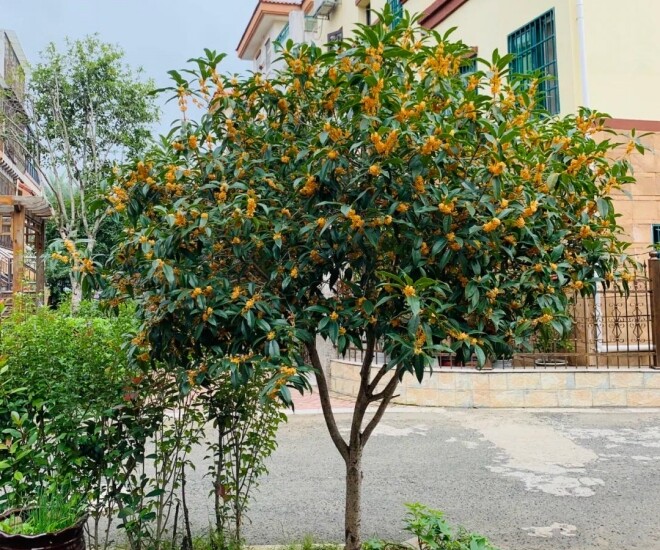
Growing to an average height of 3 to 5 meters, the Cinnamon Tree boasts evergreen foliage and tiny yet intensely fragrant flowers that usually bloom during cooler seasons.
Thriving in sunny and warm climates, this tree is remarkably drought-tolerant. When planted in a spacious area with well-drained, loose soil and ample sunlight, the Cinnamon Tree will flourish, gracing your garden with its elegant beauty and delightful scent.
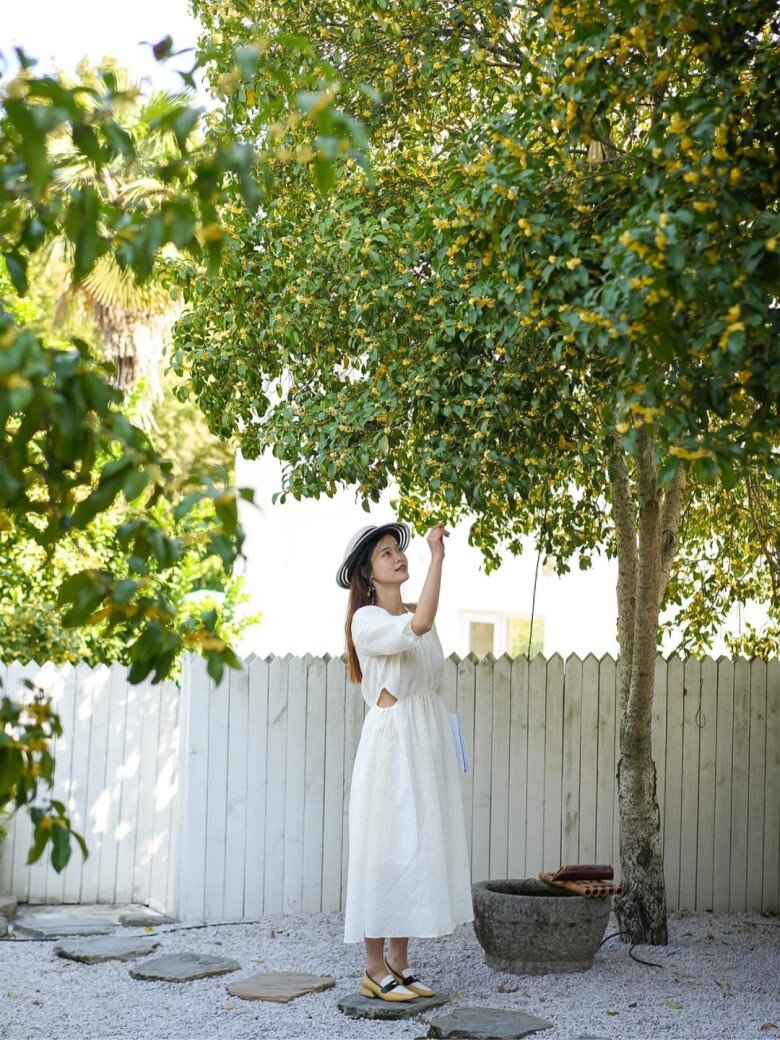
2. Orange and Tangerine Trees
It is no coincidence that during the Vietnamese New Year, or Tết Nguyên Đán, it is customary to display tangerine trees or decorate homes with oranges, which symbolize good fortune and prosperity. In the Han character system, the word for “tangerine” shares the same pronunciation as “good luck,” while the vibrant orange color of the fruit represents wealth.
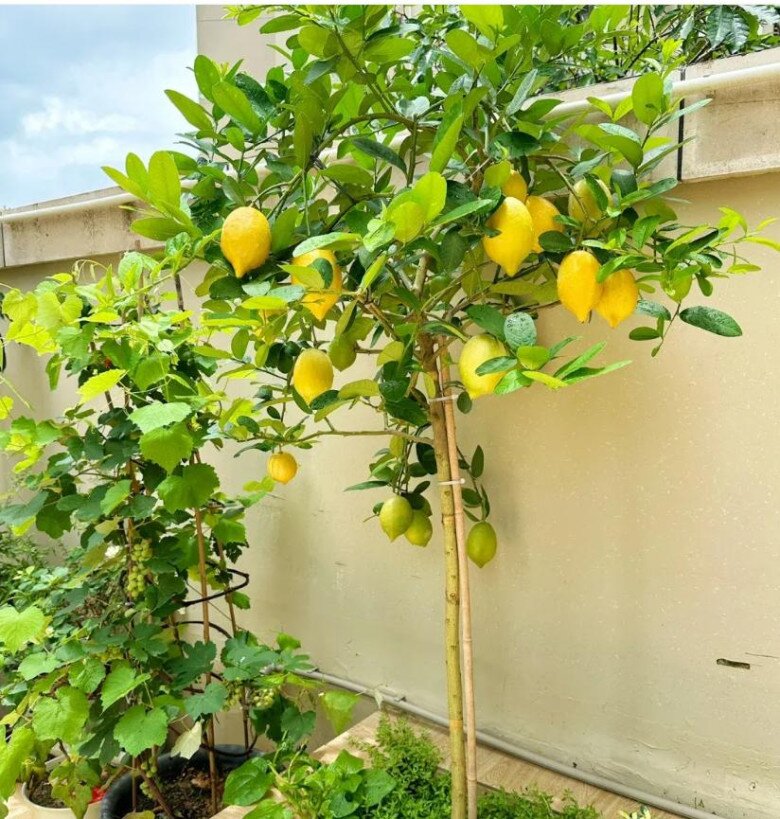
Orange and tangerine trees are small fruit-bearing trees that typically grow to a height of 1 to 3 meters, making them ideal for both garden landscapes and decorative bonsai arrangements.
These trees flourish in warm and humid climates and are sensitive to frost. When grown in a sunny location with well-drained soil and proper care during the fruiting season, they will consistently produce juicy and flavorful fruits. Having these trees in your home adds a touch of natural beauty and provides a useful source of fresh fruit.
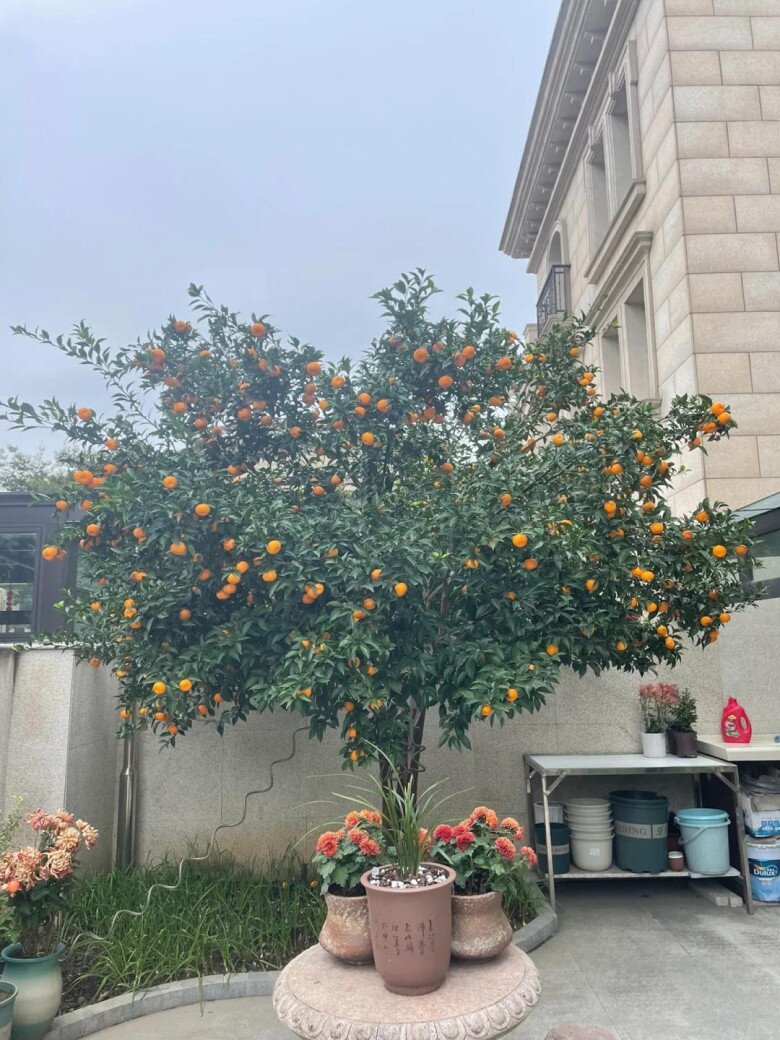
3. Chinese Hawthorn Tree
In Eastern culture, the Chinese Hawthorn Tree, also known as the Chinese Redberry, holds a special significance. Specifically, the word for “hawthorn” in Han characters sounds similar to “early,” symbolizing a wish for an early birth of a precious child.
This tree is characterized by its hardy nature and robust vitality. It can thrive in arid and harsh conditions and is relatively resistant to pests and diseases.
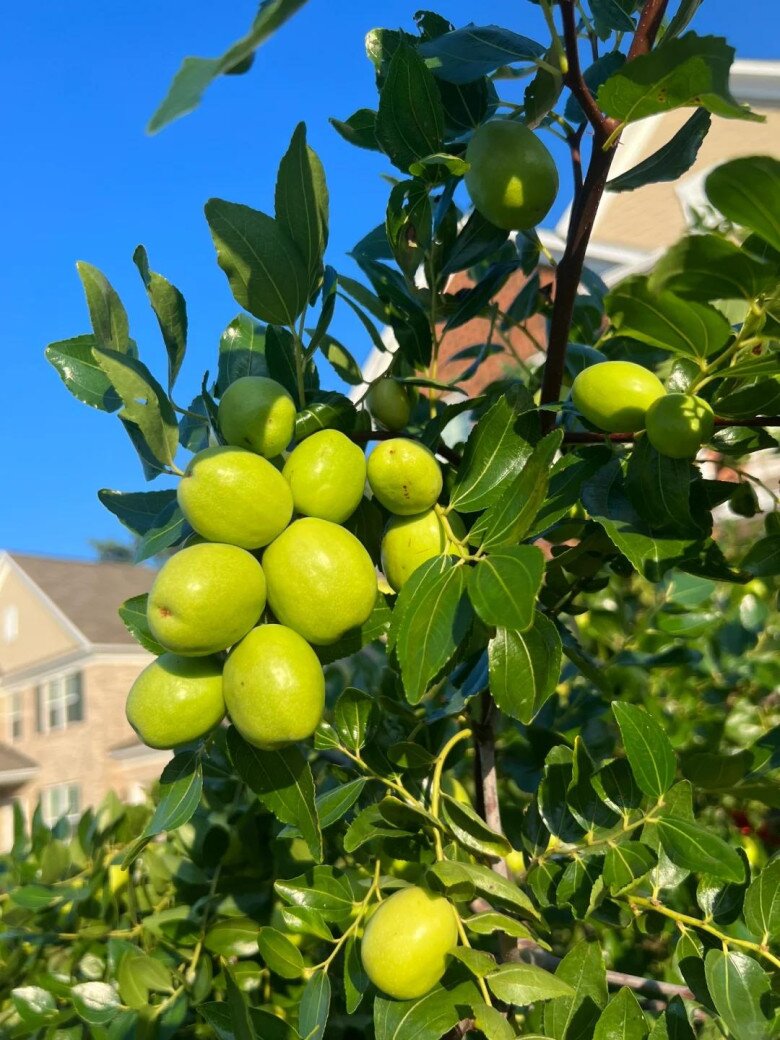
During the summer, the Chinese Hawthorn Tree bears small white flowers, followed by the appearance of fruits in the autumn. The ripe berries are reddish-brown and have a sweet, mild taste. They are commonly used in traditional dishes or as a nutritional supplement. This tree not only carries positive feng shui implications but also provides a bountiful source of nutritious fruit for the entire family.
4. Crabapple Tree
The Crabapple Tree, adorned with vibrant red fruits in late autumn, is not only a poetic image but also a feng shui symbol of fulfillment and “may all your wishes come true.” In Han characters, the word for “crabapple” shares the same pronunciation as the word for “thing,” leading to the belief that planting a crabapple tree in one’s courtyard will bring smoothness and prosperity to the family.
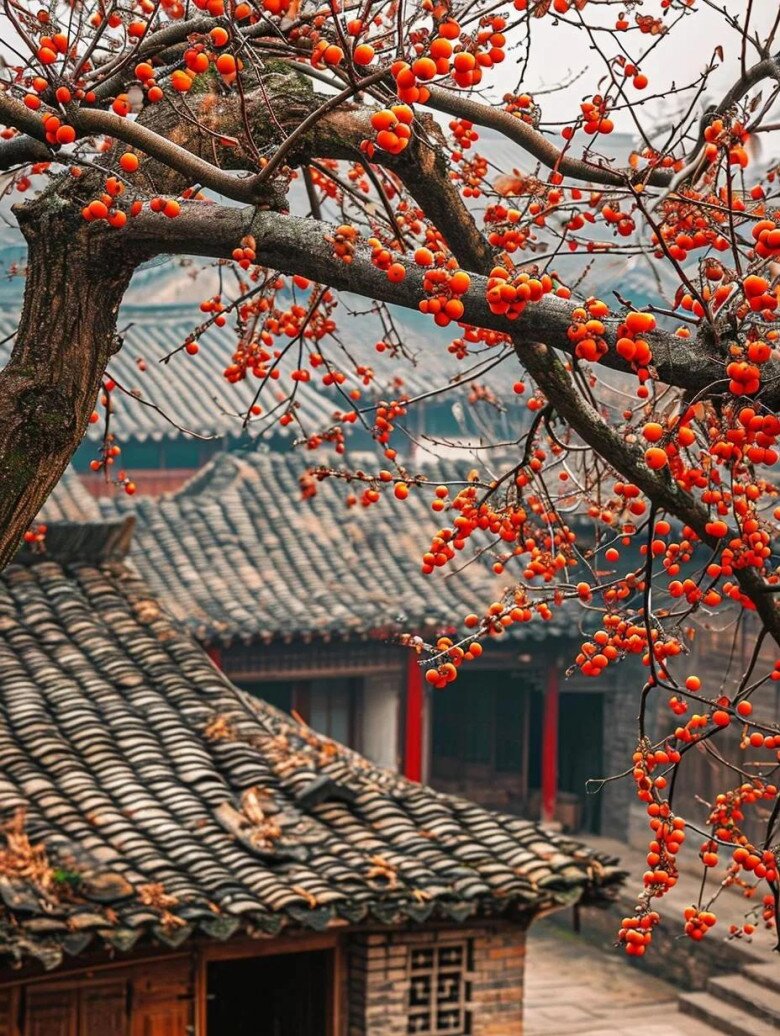
Growing to a height of 5 to 10 meters, the Crabapple Tree boasts a wide canopy that provides ample shade. Its deep green leaves fall off in winter, revealing the bright red fruits that remain dangling from the branches, creating a romantic and picturesque scene.
This tree is easy to cultivate and can tolerate drought while adapting to various soil types. With proper pruning and fertilization, it will bear sweet and consistent fruit.
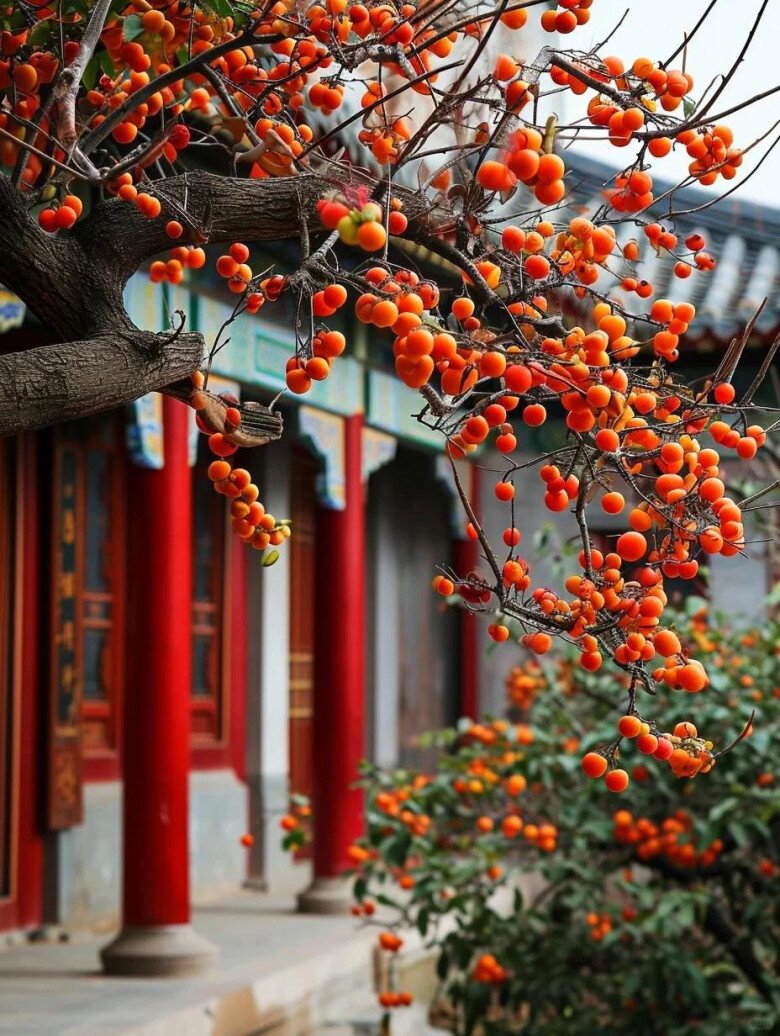
5. Pomegranate Tree
“Blessed with many children and grandchildren, and abundant in happiness and prosperity” is the feng shui symbolism associated with the Pomegranate Tree. Each pomegranate contains hundreds of tiny seeds, symbolizing fertility and the bond between generations within a family. The vibrant orange-red flowers of the pomegranate are eye-catching and bring positive energy to any living space.
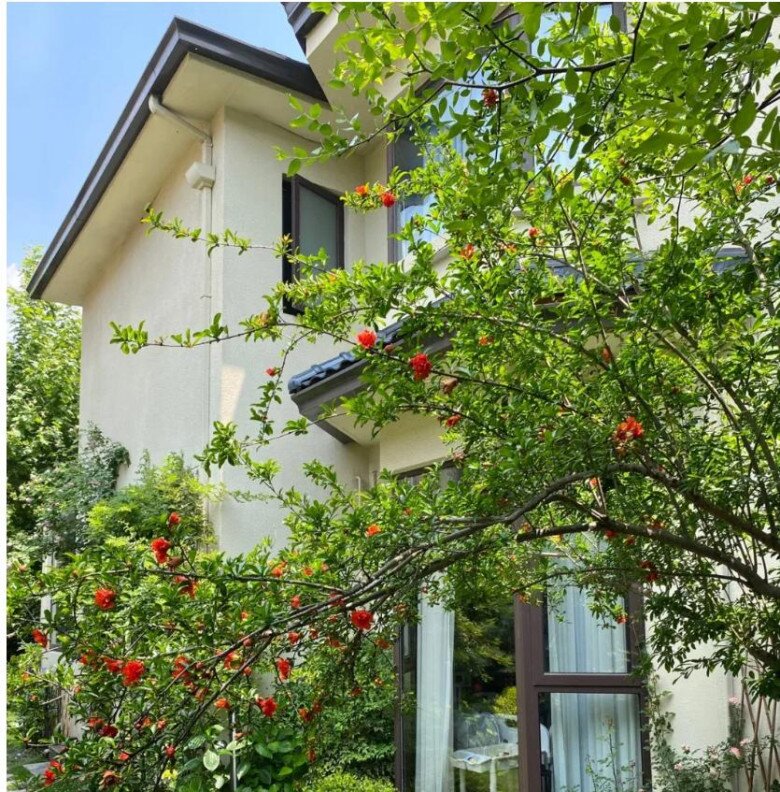
Growing to a height of 2 to 5 meters, the Pomegranate Tree thrives in sunny locations and prefers sandy loam or light loam soils with good drainage. This tree is quite drought-tolerant, rarely suffers from pests and diseases, and bears fruit towards the end of summer or early autumn. Beyond its feng shui significance, the pomegranate fruit is a valuable source of nutrition, often used for juice or as a dessert ingredient.
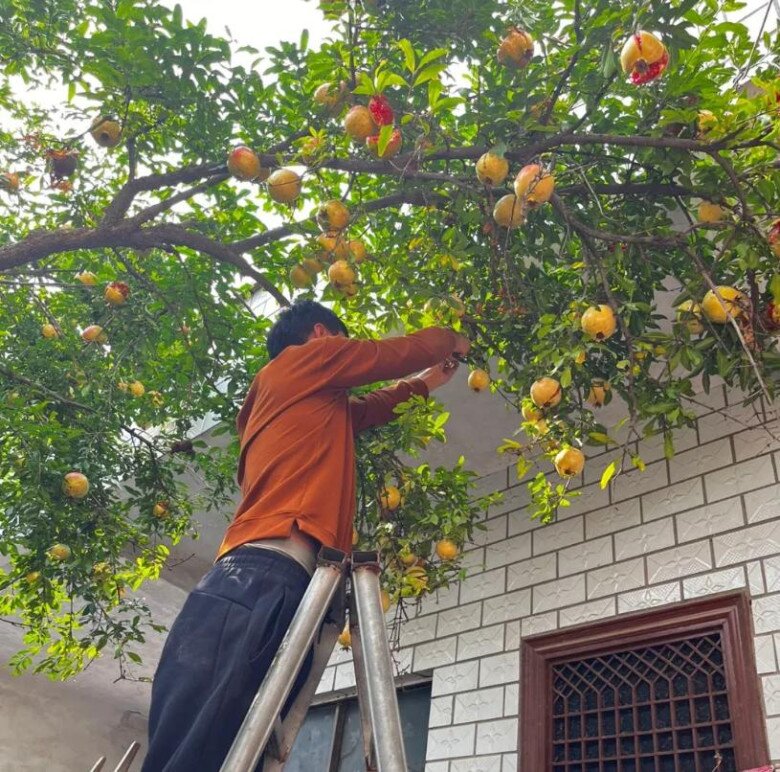
More than just decorative elements, these trees help regulate the air, provide shade, and, according to folk feng shui beliefs, attract positive energy, wealth, and happiness to the household. If you have a small yard or a vacant corner in your garden, consider planting one of these five meaningful trees to add beauty and good fortune to your life.






























